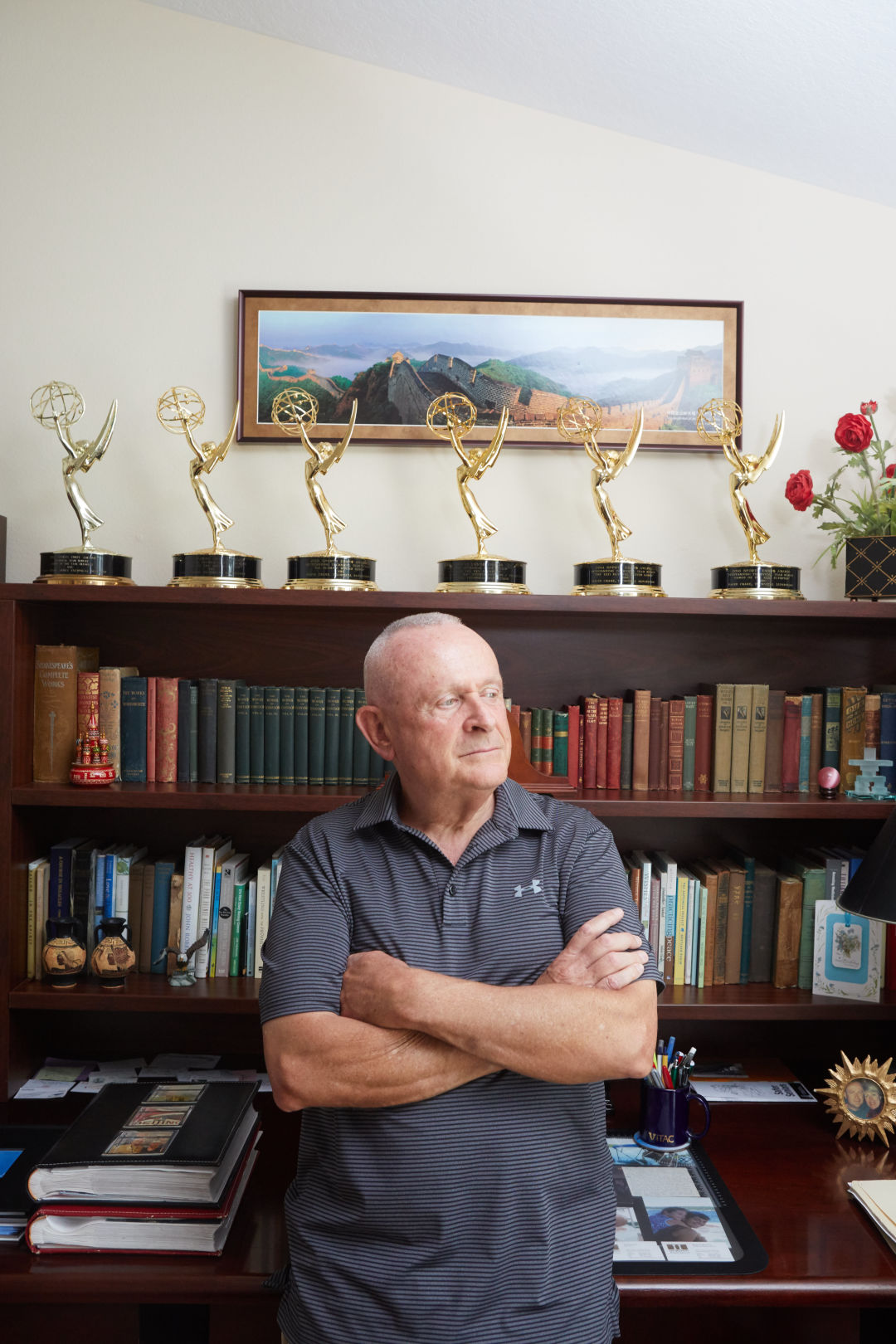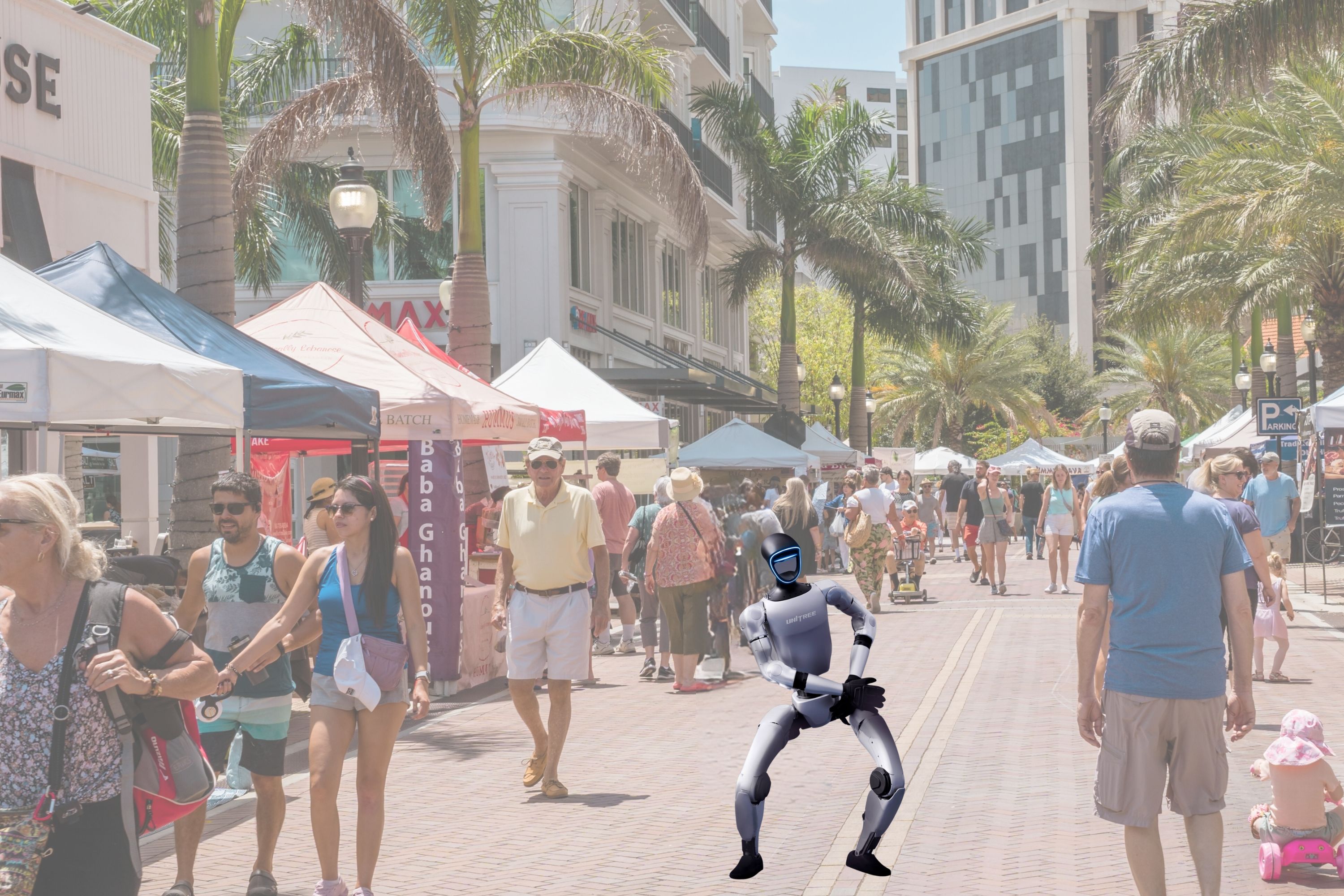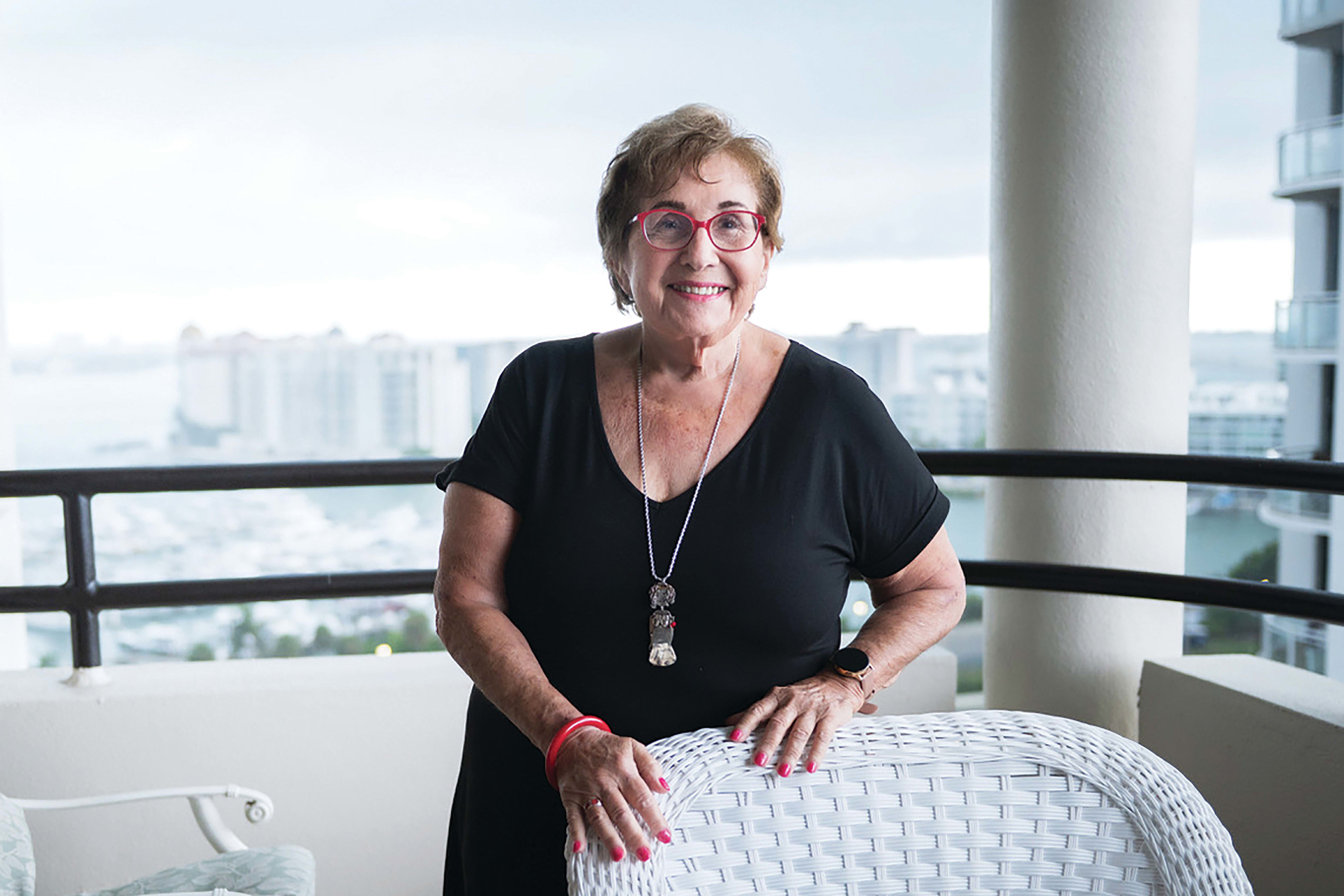Venice Resident David Crane Pioneered Closed Captioning

David Crane with his Emmys
Image: Rob Crosby
A false assumption by the U.S. Army put David Crane on a career path he never imagined. It led him to becoming a leader in the development of the closed captioning technology now ubiquitous across the entertainment industry, then becoming a multi-Emmy Award-winning technical manager for NBC’s Olympics coverage. Crane, 72, now lives in Venice with his wife of 50 years, Karen. Between Olympics assignments, he works at a tree and landscaping business that he owns with his son, Dan.
“I was born and raised in Rhode Island. My father left when I was less than a month old and I was raised by my mother and grandparents. I studied engineering at Wentworth Institute of Technology and my first job out of college was at Bell Telephone Laboratories working on the first picture phone conferencing system.
“I was drafted into the Army in 1969, and, in the infinite wisdom of the Pentagon, they thought picture phone conferencing systems were television and that I was some big fancy specialist who knew everything about TV. I told them, ‘Listen, guys, I know nothing about television, but I’m eager to learn.’
“I spent my first year at the television section of Walter Reed Medical Center, where I saw the worst of the Vietnam war, both mentally and physically. I then ended up in Korea and spent most of my time in the DMZ running a remote truck doing sports and everything else, including the Bob Hope USO Special at the base of the North Korean hills in 30-below-zero temperatures. It was a dangerous place. We had standing orders to bring the truck to the base and blow it up if we were attacked.
“When I came back from the army, I ended up at WGBH in Boston. I helped develop open captioning for the nightly ABC News broadcasts with [news anchor] Frank Reynolds. After the regular broadcast, we would add the captioning and edit out the commercials so that the newscast could be rebroadcast that evening on PBS. That allowed people who were hearing impaired access to the TV news for the first time without having to read lips.
“I went to work with National Captioning Institute, a nonprofit organization, to develop a close captioning system, [which led to] an enormous opportunity. I partnered with four other guys to start our own company called Vitac. The first President Bush signed the Decoder Circuitry Act, mandating every show had to have closed captioning by 2006. That was a real thrill for the hearing-impaired community, because now they had access to every kind of programming.
“In 1987, I became a technical manager for NBC’s Olympics coverage. I began with the Games in Seoul in 1988, starting with two venues: weightlifting and the anchor desk. That meant overseeing the lighting, video, cable, audio, graphics, trucks, all the technical aspects that go into producing a broadcast. I am coming up on my 12th Olympics. I now oversee up to 10 venues, including opening and closing ceremonies. I’ve never had to pull a remote or lost a second of air. The only time I’ve ever stopped a broadcast was a soccer match in 1996 in Birmingham, Alabama. There was an unbelievable lightning storm and I made the decision to pull my crew off the field. I’ve won eight national Emmy Awards for my Olympics work. I keep them in my office at my house. I look at it like a thank you for a lot of hard work.
“When I’m not doing the Olympics, I’m working at a tree and landscaping business I bought with my son in Venice. I got my start working with trees in the 1970s in Massachusetts when I decided to heat my house entirely by wood. I would hire myself out to cut people’s trees. I wouldn’t charge them, but I took the wood. I kept seven cords behind my house, used three and a half cords a year and never paid for any of it.
“Tree work is like television engineering in that it’s always challenging; there is always a problem to solve. How are you going to take this one down? How are you going to drop it without hitting the house? What about the power lines? I’ve always loved that kind of problem-solving. And to be able to do it in partnership with your son is an incredible pleasure.”



